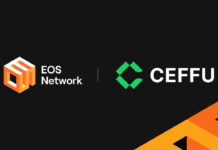Get exclusive analysis of bitcoin and learn from our trading tutorials. Join Hacked.com for just $39 now.
While many in the banking industry around the world are trying to figure out how to beat Bitcoin, from developing their own private blockchains to supporting restrictive compliance regulations, at least one bank has adopted a “join ‘em” attitude.
The Norwegian Skandianbanken, independent of its Swedish counterpart, is rolling out a new feature which allows customers to integrate their Bitcoin wallets, checking the value of their holdings at the same time they check their bank accounts, according to local publication E24.
Photo credit E24, courtesy of Skandiabanken
Blockchain Banking
Earlier this year, professional services firm PricewaterhouseCoopers released the Global Fintech Report. This report, based on a survey of over 1,300 financial services executives, reveals that cryptocurrencies and blockchain have gained enough momentum, despite the continued struggle with regulators, that major banks and other financial firms are not only taking notice but actively seeking ways to enter the ecosystem. In fact, a resounding 77% of respondents indicated that they expect to integrate blockchain technology into their systems or processes by 2020.
Skandianbanken joins the ranks of several other global banks and financial institutions exploring blockchain technology, although it is the first to unveil such a direct integration with cryptocurrencies. New York-based R3 is a distributed ledger technology firm staffed by financial industry heavy-hitters and leading a work group of the world’s largest banks and financial institutions. Additionally, the Enterprise Ethereum Alliance counts JP Morgan and UBS as launch members. Santander Bank, CME Group, and Goldman-Sachs, to name a few institutions, have announced divisions and initiatives centered around blockchain.
Bitcoin in Norway
The inclusion of Bitcoin in its online banking platform has aroused enthusiasm from the Norwegian Bitcoin community. Christoffer Hernaes, the head of Innovation and Development at Skandianbanken, told European news outlet E24, “We recognize that this [Bitcoin] is something people want to put their money in… We think it is a better approach than categorical thinking that this is scary.”
At the time of writing, customers of Skandianbanken can connect wallets such as Coinbase into their online banking dashboards, allowing them to see the balance and value of contained within the account. However, being able to actively trade Bitcoin through the bank is still set for the future, Hernaes said.
Strict financial regulations in Norway, specifically to curtail money laundering and the financing of terrorist organizations, require banks know the origin of money involved in a transaction which, due to Bitcoin’s inherent anonymity, can cause problems. Hernaes made a point of saying that these regulations are not anti-Bitcoin, but in place to fight corruption. He did, however, acknowledge that they might not be able to approve all Bitcoin-related transactions, noting that this is just the first step as the bank ‘tests the waters’ of the cryptocurrency space.
Blockchain in Europe
Skandianbanken’s announcement is the latest in a series of Bitcoin and blockchain related news coming out of Europe. The European Parliament released a report outlining its predictions for how blockchain will affect society at large. This came shortly on the tails of a statement from the European Central Bank, reaffirming the need to support the development of blockchain programs and even proposing a pilot project, seeking to improve its regulatory measures.
After Barclay’s announcement of Europe’s largest Fintech center, set to establish London as a global hub for innovation in the financial sector, and the European Commission’s planned blockchain observatory, Europe is positioning itself to be a major player in the global crypto-economic landscape moving into the future.
Featured image from Shutterstock.
Unstoppable organizations
Our Social Networks: Facebook Instagram Pinterest Reddit Telegram Twitter Youtube










